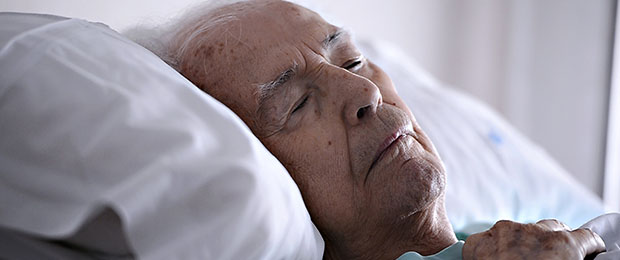The idea that death is painful and that agony is poorly managed in palliative care is a rather widespread concept. However, according to three Australian scientists in an article published in The Conversation, this type of death “is extremely rare”. Furthermore, painful symptoms, fatigue, insomnia and respiratory problems improve as patients approach death. More than 85% of palliative care patients do not present with any serious symptom at the time of death.
These findings are based on data published by the Australian Palliative Care Outcomes Collaboration (PCOC)[1], which highlights an improvement in pain management during palliative care over the last ten years, based on more in-depth evaluations of patient requirements, more effective drugs and a multidisciplinary care strategy.
The most common end-of-life symptom is fatigue as opposed to pain. In addition, although almost 8% of patients reported intense pain at the start of their palliative care regime, only 2.5% complained of pain during their final days. These figures suggest that existing medication or other forms of treatment do not alleviate pain for a small number of patients. It should also be noted that some patients refuse care for family, personal or religious reasons.
The remaining problem is accessibility to end-of-life care. Nearly 160,000 deaths are recorded every year in Australia, approximately 100,000 of which are predicted. However, only 40,000 people receive palliative care each year.
[1] 250,000 patients over the last 10 years.
The Conversation, Kathy Eagar, Sabina Clapham, Samuel Allingham (10/12/2017)

